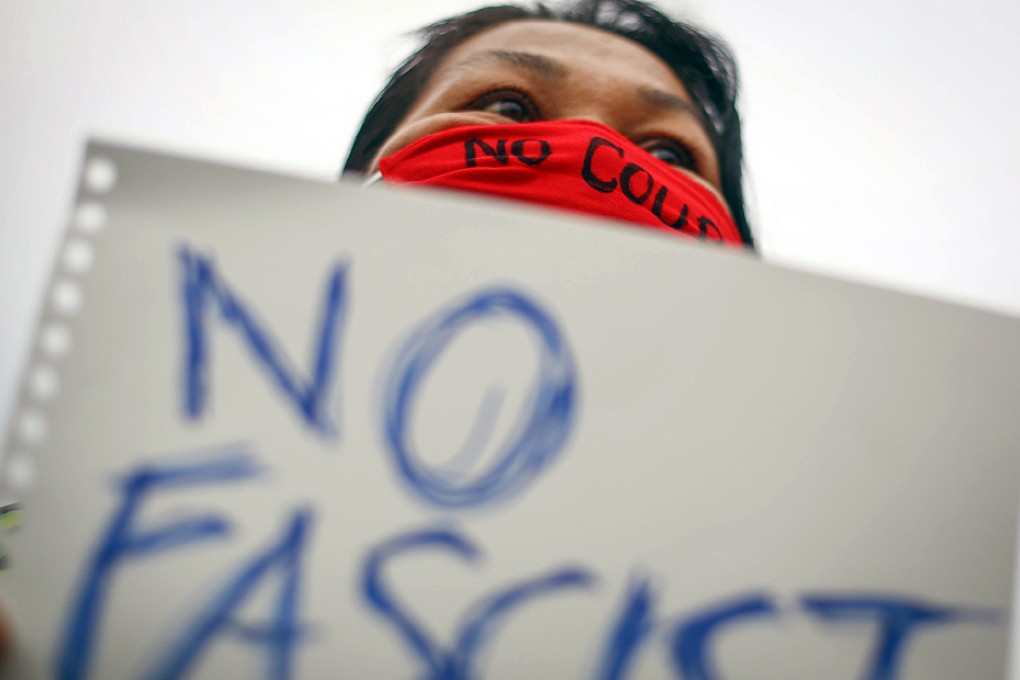Despite the threats, I will not bow to Thailand's despots
Pavin Chachavalpongpun, wanted by the junta, condemns persecution

Four days after the Thai military overthrew the elected Puea Thai-led government, King Bhumibol Adulyadej endorsed the coup, giving legitimacy to the unlawful intervention. Indeed, the royal endorsement will be crucial for implementing the junta's cast-iron policies to fully control politics.
The coup makers have strangled the space for freedom of expression. The main targets are the media and free-thinking academics. The coup makers issued a number of orders, including one that academics should report to the authorities. Failure to do so would result in jail for up to two years and/or a fine of 40,000 baht (HK$9,500).
My name is among those wanted by the junta. Since the coup, I have been critical of the role of the military in its latest putsch, which was apparently perceived as some kind of threat. Although intimidating academics is not new in the rough and tumble world of Thai politics, issuing an order to detain them is, and serves to threaten academics, even those based outside the country, as in my case.
Shocked at first, I made my position clear by not responding to the summons since I reject the legitimacy of the coup and will not take orders from despots. My experience of teaching overseas for many years compelled me to maintain my integrity and professionalism.
The claim that the military's intervention was necessary to restore peace and order is baloney. This is not about supporting political reforms or promoting democratisation. Thailand is now going back to the crudest form of authoritarianism.
Thus far, the coup leader, General Prayuth Chan-ocha, has been unable to give a date for the next election. Instead, he has continued to crack down on what he sees as anti-coup elements. More academics, sadly, have been detained in unknown locations. Some could face other charges, such as violating martial law, or the draconian lèse-majesté law. Lèse-majesté, or the crime of injury to royalty, is defined by Article 112 of the Criminal Code, which says defamatory, insulting or threatening comments about the king, queen and regent are punishable by three to 15 years in prison.
The investigation and prosecution process is, by nature, opaque, perhaps even more so under the present circumstances.